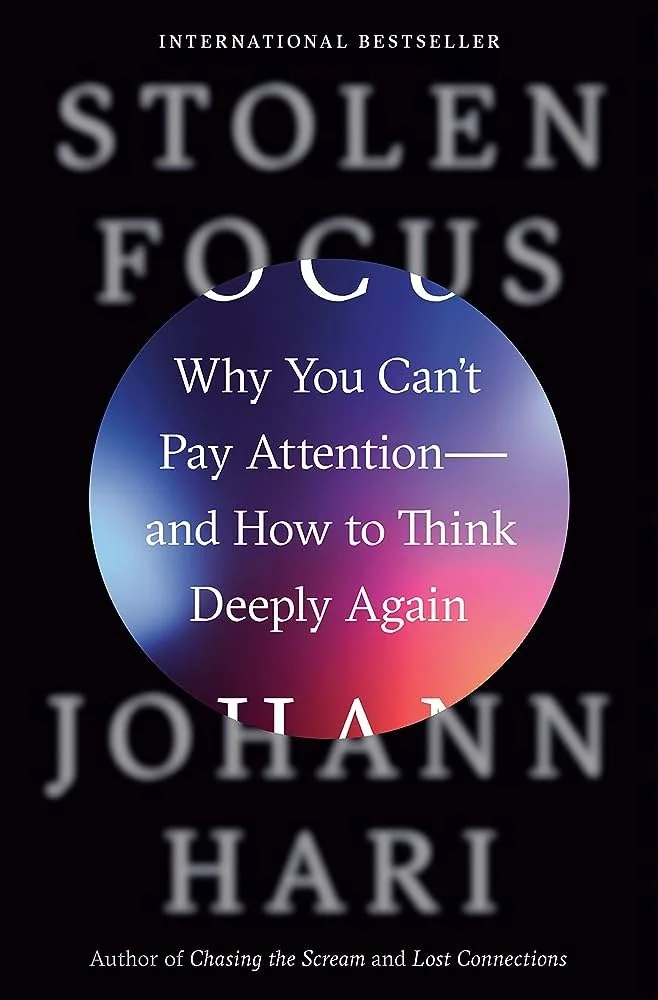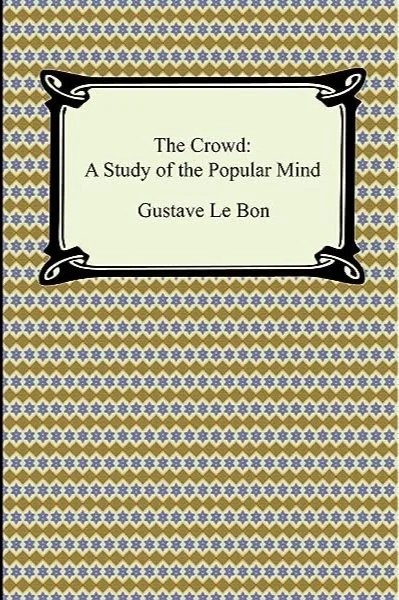Psychology
The Paradox of Choice
"The Paradox of Choice" by psychologist and professor, Barry Schwartz, explores the psychological and social implications of having too many choices in our modern consumer-driven society.
Schwartz argues that while having choices is generally considered a positive aspect of freedom, too many choices can lead to decision paralysis, anxiety, and a sense of dissatisfaction. He introduces the concept of the "paradox of choice," which suggests that as the number of choices increases, our ability to make decisions and find satisfaction decreases.
Schwartz also explores the role of advertising, marketing, and societal pressures in continuing the myth that more choices lead to greater happiness. He supports a shift in perspective, encouraging readers to embrace the concept of "satisficing" (satisfying + sufficing) rather than constantly seeking the "best" choice.
Stolen Focus
"Stolen Focus" is a thought-provoking and timely book written by Johann Hari. In this, Hari explores the challenges and factors that have contributed to the modern epidemic of distraction and declining attention spans.
The book explores the impact of digital technology, social media, and the constant barrage of information on our ability to focus and think deeply. Hari argues that our attention has been "stolen" by the demands of the digital age, and he explores the psychological and societal consequences of this phenomenon.
Throughout "Stolen Focus," Hari draws on scientific research, personal anecdotes, and interviews with experts to shed light on the reasons behind our diminished attention spans. He discusses the role of dopamine, the addictive nature of technology, and the impact on mental health and relationships.
The Wisdom of the Enneagram
"The Wisdom of the Enneagram" by Don Richard Riso and Russ Hudson explores the Enneagram system—a powerful tool for self-discovery and personal growth—and provides readers with a deep understanding of human personality types and their underlying motivations.
The Enneagram is a personality framework that identifies nine distinct personality types, each characterised by its unique set of traits, fears, desires, and defence mechanisms. Riso and Hudson look into the intricacies of these nine types and offer readers the opportunity to explore their own type as well as guidance on how individuals of different types can better understand and communicate with one another.
The Crowd: A Study of the Popular Mind
"The Crowd: A Study of the Popular Mind" is a groundbreaking and influential book written by Gustave Le Bon, a French social psychologist, and sociologist. First published in 1895, this classic work explores the collective behaviour and psychology of crowds, shedding light on the dynamics that shape the actions and beliefs of large groups of people.
Le Bon's book examines the ways in which individuals, when part of a crowd, can undergo profound psychological changes. He argues that the collective mind of a crowd is different from the individual minds of its members, leading to behaviours and reactions that are often irrational and emotional.
Throughout the book, Le Bon discusses the characteristics of crowds, such as their susceptibility to suggestion, their capacity for both great heroism and extreme violence, and their tendency to follow leaders or adopt shared beliefs. He explores historical events and examples to illustrate his theories, including political revolutions, religious movements, and mob behaviour.
The Laws of Human Nature
"The Laws of Human Nature" is an insightful book written by Robert Greene, a bestselling author known for his works on strategy, power, and human behaviour. In this book, Greene explores human nature, providing readers with a comprehensive guide to understanding and navigating the complex dynamics of human behaviour.
The book is structured around a series of "laws" or principles that govern human behaviour, drawing on psychology, philosophy, and history to illustrate these laws in action. Greene discusses topics such as self-deception, irrationality, conformity, aggression, and the role of emotions in decision-making.
Throughout "The Laws of Human Nature," Greene offers practical strategies and insights to help readers better understand themselves and others, improve their interpersonal relationships, and achieve their goals. He provides guidance on how to navigate social dynamics, build trust, and influence people effectively.
Man and His Symbols
"Man and His Symbols" is a significant work authored by Carl Gustav Jung, the renowned Swiss psychiatrist and psychoanalyst. Although Jung is known for his complex psychological theories, this book was written to make his ideas more accessible to the general public.
The book is a collaboration between Jung and several other contributors, including Marie-Louise von Franz, Joseph L. Henderson, Aniela Jaffé, and Jolande Jacobi. In "Man and His Symbols," Jung explores the world of symbols, dreams, and the unconscious mind, offering readers a deeper understanding of the role of symbolism in human psychology and culture.
The book explores the idea that symbols are a fundamental part of human existence and play a crucial role in our inner lives. Jung discusses how symbols appear in dreams, myths, and art, and how they can provide insights into the unconscious aspects of the psyche.
The Man Who Mistook His Wife for a Hat
"The Man Who Mistook His Wife for a Hat" is an acclaimed book written by Dr. Oliver Sacks, a renowned neurologist and author. In this captivating work, Dr. Sacks explores the fascinating stories of his patients who have neurological disorders and unusual cognitive experiences.
The book is a collection of clinical case studies, each highlighting a unique neurological condition and its impact on an individual's perception, behavior, and identity. Dr. Sacks describes patients who experience a wide range of neurological anomalies, from the titular patient who struggles with visual agnosia (the inability to recognise familiar objects or faces) to individuals with conditions like Tourette's syndrome, amnesia, and autism.
Throughout the book, Dr. Sacks combines his expertise as a neurologist with his compassionate storytelling to provide readers with a deeper understanding of the human brain. He explores the challenges faced by his patients and their families, as well as the resilience and adaptability of the human spirit in the face of neurological conditions.
Crime and Punishment
"Crime and Punishment" is a classic novel written by Fyodor Dostoevsky, one of the most renowned Russian authors. This was first published in 1866 and is considered one of Dostoevsky's most significant works.
The novel is set in St. Petersburg, Russia, and revolves around the life of the impoverished former student Raskolnikov. Raskolnikov is a deeply conflicted character who becomes obsessed with the idea of committing a perfect crime to prove his theory that some individuals, known as "extraordinary men," are above conventional moral laws.
Driven by this belief, Raskolnikov murders an elderly pawnbroker, but the act haunts him and sets off a series of psychological and moral crises. As the story unfolds, Raskolnikov's guilt and paranoia intensify, and he is pursued by the persistent and astute police detective Porfiry Petrovich.
"Crime and Punishment" explores themes of morality, justice, guilt, and redemption, as well as the inner turmoil and psychological complexities of its characters. Fyodor Dostoevsky is widely recognised for his exceptional ability to combine literature and psychology in his work, offering readers a vivid and immersive journey into the minds of some of the most complex and mentally unstable characters in literary history.







